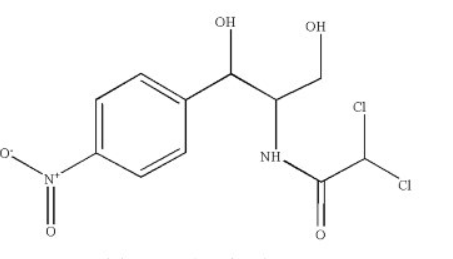Key features and details | |
Cat. No. | MABL-1204 |
Name | Anti-Chloramphenicol mAbs |
Clone No. | AFD-Chl-VHH (Chl‐B2F47W) |
From | Recombinant Antibody |
Isotype | Engineer antibody |
Application | ELISA |
Species Reactivity | Species independent |
Basic Information | |
Specificity | This antibody binds chloramphenicol, which is a broad spectrum antibiotic used in the treatment of a number of bacterial infections. It is also reported to show weak binding for florfenicol. Chloramphenicol is an antibiotic and is in the class of antimicrobials that inhibits protein synthesis. It has been used for treating superficial eye infections such as bacterial conjunctivitis, and otitis externa. It has also been used for the treatment of typhoid and cholera. |
Alternative Name | C11H12Cl2N2O5; Florfenicol; CAS: 56-75-7; CAP; CLM; chloromycetin; chlornitromycin; levomycetin |
UniProt | |
Immunogen | The original antibody was generated by immunizing a llama with a cocktail of three different small molecules namely chloramphenicol, enrofloxacin and semicarbazide all of which were conjugated with KLH to illicit immune response. A phage display library was generated and the particular clone was isolated by panning the library against chloramphenicol-BSA conjugate. |
Application Notes | This antibody can be used for detection of antibiotic adulterants in food. The binding characterization of this antibody for chloramphenicol-BSA was done using ELISA. The original VHH antibody bound chloramphenicol and was reported to have a dissociation constant of Kd=57 nM. This antibody was also used in test kit to determine the presence of chloramphenicol in fish extracts. In an indirect competitive ELISA this antibody bound soluble chloramphenicol and florfenicol with an IC50 of 8.706 µM and 28.57 µM respectively. The thermal stability of this antibody determined using a GloMelt™ protein kit and it was reported that the antibody had melting temperatures (TM) over 65°C (PMID: 36153664). |
Antibody First Published | Swofford et al. Structure and specificity of an anti‐chloramphenicol single domain antibody for detection of amphenicol residues. Protein Sci. 2022 Nov; 31(11): e4457. PMID:36153664 |
Note on publication | Describes the generation of single chain antibodies against chloramphenicol, to be used in kits to detect antibiotic adulteration in seafoods. |
COA Information (For reference only, actual COA shall prevail) | |
Size | 100 μg Purified antibody. |
Concentration | 1 mg/ml. |
Purification | Protein A affinity purified |
Buffer | PBS with 0.02% Proclin 300. |
Concentration | 1 mg/ml. |
Storage Recommendation | Store at 4⁰C for up to 3 months. For longer storage, aliquot and store at - 20⁰C. |



